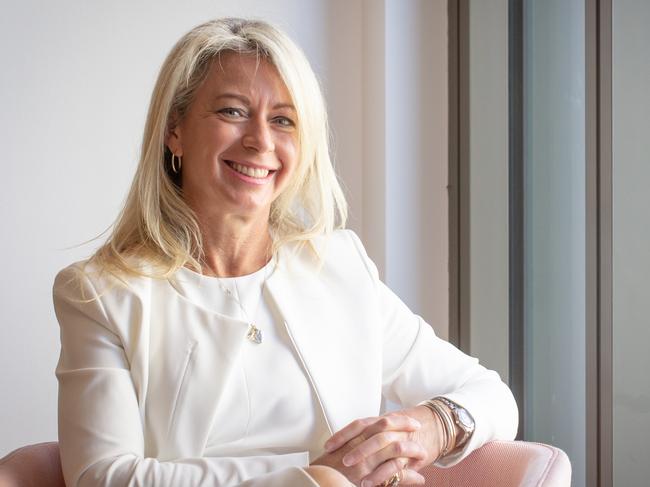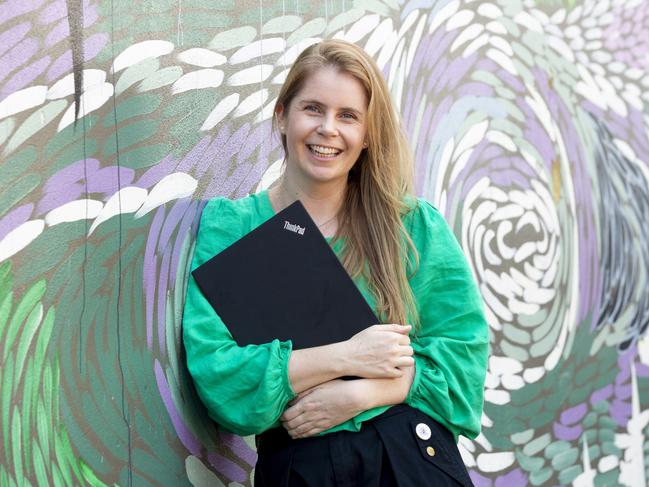Where to find $150,000-plus salaries in Australia
New data reveals what jobs could see you pocket salaries of $150,000-plus. See your chance of nabbing your target salary in our interactive chart.
SmartDaily
Don't miss out on the headlines from SmartDaily. Followed categories will be added to My News.
Tech skills are separating Australia’s haves and have-nots, with jobseekers in the ICT sector as much as 58 times more likely than their non-ICT counterparts to nab a $150,000-plus salary.
New exclusive data from job site SEEK reveals almost a third (32.5 per cent) of job ads listed in the year to July in information and communication technology (ICT) had a full-time equivalent salary of $150,000 or more.
Yet, this kind of money was reserved for fewer than one in 200 (0.4 per cent) administration/office support roles and hospitality/tourism roles.
SEEK senior economist Matt Cowgill says skilled IT professionals are in strong demand as employers compete in a global market for talent.
“The most accomplished IT professionals are able to command a premium salary, because of this fierce competition for their skills,” he says.
“Before Covid, the SEEK Advertised Salary Index for the IT industry was growing at a similar pace as the overall index for all industries. Since Covid, advertised salaries have grown noticeably faster for the IT industry, up nearly 12 per cent on 2019 levels compared to 8 per cent for all industries.”
Cowgill says ICT roles with the highest average advertised salaries are chief information officer, head of engineering, general manager, chief technology officer and head of analytics.
“These roles are typically senior managerial roles in which candidates are likely to have technical skills and also manage staff in technical roles,” he says.
When it comes to a jobseeker’s chance of landing a top pay packet, ICT even ranks ahead of the mining, resources and energy sector, in which 23.3 per cent of job ads offer $150,000 or more.
Other job categories with a large portion of high-paying roles available include consulting and strategy (23.1 per cent), engineering (19.5 per cent), legal (18.6 per cent) and construction (16.8 per cent).
On the other end of the spectrum, there are very few high-paying roles in hospitality and tourism (0.4 per cent), retail and consumer products (0.6 per cent), and call centre and customer service (0.7 per cent).
SEEK data also shows a small portion of high-paying trades and services roles, but does not include tradespeople working as sole traders and small business owners.
To put these numbers into context, the average advertised full-time equivalent salary on SEEK is about $80,000 in Tasmania and South Australia, $82,000 in Queensland, $85,000 in Victoria, $89,000 in the Northern Territory, NSW and Western Australia, and $101,000 in the ACT.

Nicole Gorton, director of recruitment agency Robert Half, says the current tight job market has led to more jobseekers receiving multiple job offers and this is having a flow-on effect for salaries in general.
“We have seen an increase in salaries, albeit usually not until (the employer) has experienced job offers being turned down,” she says.
“They start to think ‘I need to readdress the remuneration package’.
“In my 25 years in the industry, I have never seen anything like (the current worker shortage).
“We usually work with jobseekers to help them navigate their next role and CV and competency-based interviews and negotiating their offer, but we are not doing any of that at the moment – it’s all about companies and what they need to do to retain staff and how to differentiate themselves when jobseekers are getting multiple offers. We are seeing anything up to a 10 per cent, 20 per cent and sometimes 50 per cent increase in salary offered.”
Robert Half research shows salary is the main reason for choosing one employer over another for about two-thirds (68 per cent) of office workers. It is followed by flexibility (40 per cent) and benefits (37 per cent).
Gorton says jobseekers in the $150,000-plus pay range are often also basing their decisions on whether they have access to mentors, a strong leadership team and learning opportunities.

Deakin University Master of Cyber Security student Tiffany Mann, 37, is making a career change from the health to the IT sector and says the potential to earn a high salary helped support her decision, but it was not the driving factor.
“I knew the financial opportunities on the other end may be able to mitigate the cost of taking time off to study,” Mann, from Darwin, says. “I decided one day, I had to quit exercise physiology and go back to uni to study IT. After my first semester, I decided to specialise in cyber security as it combines the areas I had most enjoyed into one domain.”
PORTION OF JOB ADS OFFERING $150K-PLUS
ICT 32.5%
Mining, Resources & Energy 23.3%
Consulting & Strategy 23.1%
Engineering 19.5%
Legal 18.6%
Construction 16.8%
Banking & Financial Services 12.5%
Government 8.4%
Insurance & Superannuation 8.0%
Healthcare & Medical 7.4%
Accounting 6.9%
Human Resources & Recruitment 6.8%
Marketing & Communications 6.2%
Sales 5.5%
Real Estate & Property 5.2%
Design & Architecture 4.8%
Science & Technology 4.6%
Advertising, Arts & Media 4.1%
Education & Training 3.5%
Manufacturing, Transport & Logistics 1.8%
Sport & Recreation 1.6%
Community Services & Development 1.0%
Trades & Services 0.9%
Call Centre & Customer Service 0.7%
Retail & Consumer Products 0.6%
Hospitality & Tourism 0.4%
Administration & Office Support 0.4%
SOURCE: SEEK job ads August 2021 – July 2022




